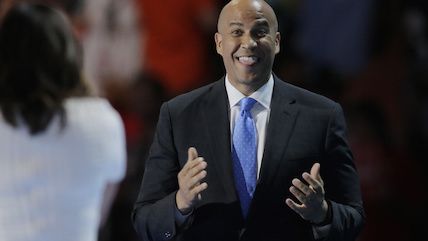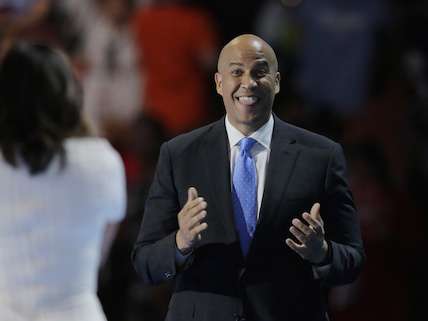What Cory Booker Gets Wrong About Tolerance and Love
'We are not called to be a nation of tolerance,' said Booker. 'We are called to be a nation of love.'


The crowd at the Democratic National Convention loved New Jersey Sen. Cory Booker's primetime speech on Monday night: his remarks earned a standing ovation and drew immediate comparison's to then-Sen. Barack Obama's 2004 convention speech, which catapulted him to political celebrity status.
Booker's speech was well-liked, but it wasn't very good. It was filled with contradictory platitudes, and misstated the legal and moral obligations of people who live in a free society such as ours.
Booker condemned tolerance, of all things.
"We are not called to be a nation of tolerance," he said. "We are called to be a nation of love."
This is exactly backwards. The American project is not about forcing everyone to love each other. Such a thing would be impossible. The United States is a melting pot of different ethnic and religious groups—many of whom actually hate each other. Trying to force everyone to get along is a recipe for disaster.
Thankfully, our Constitution does not require us to love everyone. It requires us to extend tolerance—and equal rights—to everyone, even people we despise. It means that Jewish people, Muslims, and Christians all have the right to criticize each other. It means a Trump-supporting white southerner and a Black Lives Matter activist both get to open-carry, if they want to. It means a gay-hating baker doesn't have to bake a cake for a gay wedding, and a gay-loving baker doesn't have to bake a cake for an anti-gay rally (or, at least, it should mean that).
Citizens being compelled to love one another is an idea straight out of 1984—quite literally. As O'Brien tells Winston, "You must love Big Brother. It is not enough to obey him: you must love him."
It's fine to urge people to be more loving, of course. But that's a moral issue, not a legal or political one.


Show Comments (53)